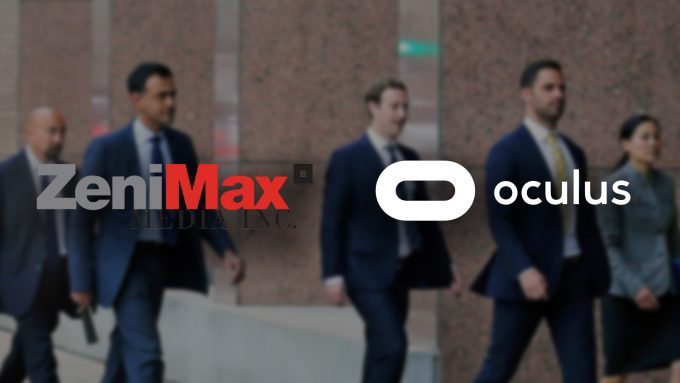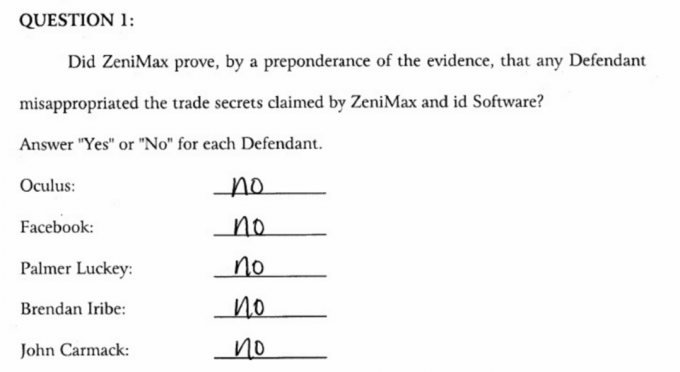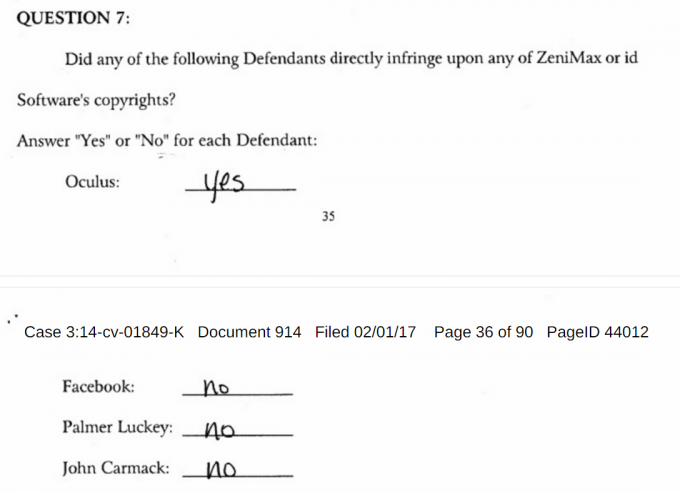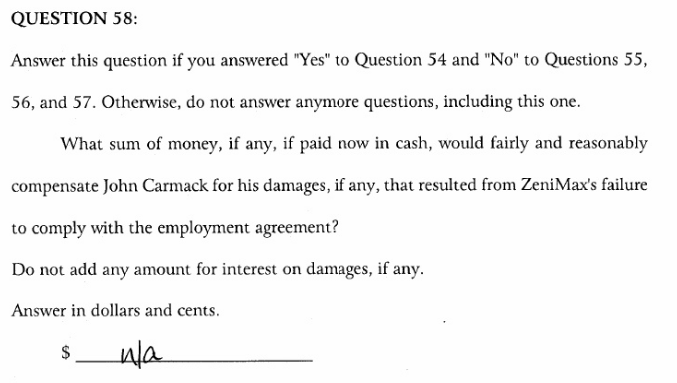While it wasn’t the $4 billion slam dunk ZeniMax was hoping for, a Dallas, TX jury today awarded $500 million to ZeniMax after finding that Oculus founder Palmer Luckey had breached nondisclosure agreements. However, Oculus was not found to have misappropriated trade secrets, a key claim made by ZeniMax in the case.
Polygon reports that the verdict in the ZeniMax v. Oculus case has just come out following weeks in the courtroom and several days of jury deliberation:
Of the $500 million, Oculus is paying out $200 million for breaking the NDA and $50 million for copyright infringement. Oculus and Luckey each have to pay $50 million for false designation. And Iribe has to pay $150 million for the same, final count.
According to a statement provided to Polygon, Oculus says they plan to appeal the ruling, and further tried to position the jury’s decision as a victory.
“The heart of this case was about whether Oculus stole ZeniMax’s trade secrets, and the jury found decisively in our favor,” an Oculus spokesperson told Polygon. “We’re obviously disappointed by a few other aspects of today’s verdict, but we are undeterred. Oculus products are built with Oculus technology. Our commitment to the long-term success of VR remains the same, and the entire team will continue the work they’ve done since day one – developing VR technology that will transform the way people interact and communicate.”
For background on the case, see our summary here.
Jury Documents Detail Verdict
With two defendants and five defendants, the verdict in this case was not a single, simple ruling, but an array of assignments of liability, damages, and more.
The full 90 page jury instructions and verdict document, details the 58 questions the jury deliverated on to arrive at the $500 million ruling.
What Happens Next?
While in criminal cases the burden of proof is “beyond a reasonable doubt” (meaning the prosecution must prove the defendant is guilty beyond a reasonable doubt), the typical burden of proof facing plaintiffs in civil (like this one) cases is much lower. With respect to most civil claims, the plaintiff need only prove each element of a claim by a “preponderance of the evidence.” To establish an element by a preponderance of the evidence means to prove that “something is more likely so than not so.”
The unpredictability that accompanies jury decisions (especially in civil cases with complex issues) is a main reason why parties tend to settle lawsuits, and some settle while the case is with the jury.
Although the verdict has been announced, it’s not likely the end of the case, but actually a second beginning. Given the high stakes of this case, expect a number of post-verdict motions and appeals, resulting in the case dragging on indefinitely. The appellate process can take years. Often, parties will settle during the appellate process for an array of reasons, ranging from business concerns to legal uncertainty to resource drain.





